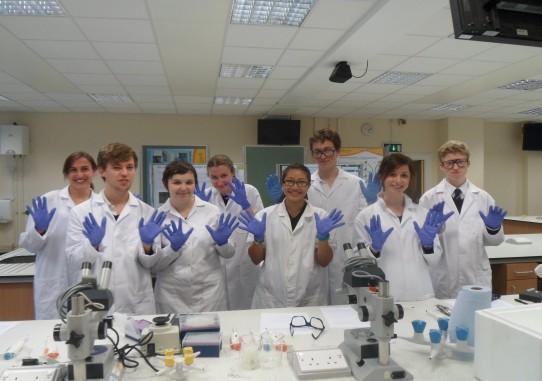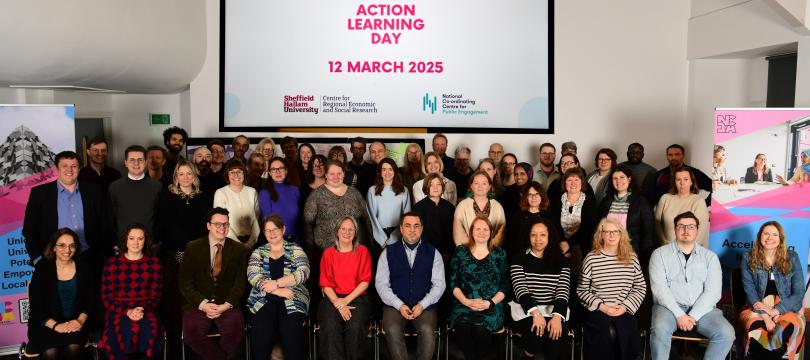Developing meaningful ‘added value’ activities between researchers and schools
This case study outlines some of the activities that the Aberystwyth University hosted SusNet Wales project piloted in their first year.

The activities described in this case study were delivered through the School-University Partnerships Initiative (SUPI). Funded by Research Councils UK, SUPI involves 12 universities working in partnership with local schools, with coordination support from the NCCPE. SUPI projects aim to develop more effective engagements between researchers and school pupils, and to inspire a broader range of pupils to develop inquiring minds by engaging them in a diversity of exciting hands-on research related activities.
This case study outlines some of the activities that the Aberystwyth University hosted SusNet Wales project piloted in their first year.
Lead organisations
The Institute of Biological, Environmental and Rural Sciences (IBERS), Aberystwyth University and Penglais School
Project overview
The SusNet Wales (Sustainability Network Wales) project has enabled pupils to pursue different topics within a typical research environment. Activities were developed with teachers to link with, and add value to, current curricular activities. This enabled students to expand and develop specific topics of interest, whilst learning crucial techniques required for many of their desired educational and career pathways.
Audience
Sixth form pupils
Project outputs
Due to the modest number of pupils participating in the project during the pilot year, university researchers were able to develop modules specifically tailored to the needs and interests of students.
The activities were designed to add value to topics covered as part of the curriculum. For example, pupils had the opportunity to visit the university and take part in experimental design, planning and execution, adding significant value to the theory developed in the classroom. This also gave them a taste of working in a professional laboratory environment – including learning about Good Laboratory Practice and appropriate Health, Safety and Environmental regulations. One of the pupils commented on how interesting it was, ‘building on stuff we learnt in class and expanding on that in a proper laboratory setting’.
One of the most exciting aspects for pupils was that the experiments were linked directly to research currently being undertaken at the university. This enabled students to investigate applied aspects of the practical work they had undertaken. The Chemistry unit provided pupils with activities to link their practical laboratory experiences to current research into the production of Biodiesel and Bioethanol as viable and sustainable alternatives to fossil fuels. During the Biology unit practical laboratory sessions allowed students to investigate the concepts of drug resistance in parasitic nematodes. These sessions provided experience of microscopy, experimental design and execution, molecular biology and bioinformatics which were directly linked to university research in Parasitology.
Project outcomes
Students had the opportunity to engage directly with practising researchers in a way that enhanced the curriculum and raised ambition; teachers were able to refresh their knowledge of the subject in a practical way; and researchers had the chance to develop their transferable skills and to connect with the Researcher Development Framework.
Dr Elizabeth Hart, who works for the Institute of Biological, Environmental and Rural Sciences (IBERS) commented that the pupils ‘thrived on hands on sessions because they could see changes happening right in front of them.’ Sarah Payne, head of the sixth form at Penglais School, described how the sessions balanced learning with a fun, supportive environment – ‘to have this resource on our doorstep is a huge benefit to us and we hope to work even closer with the University in future.’ Pupil feedback also indicated that the project is encouraging pupils to think about different career paths, with one student noting that ‘It was useful and interesting to work in a more advanced laboratory setting to get a feel for what research at University could be like and that influenced me to possibly study biology at a higher level’.
Key to making it work
Developing activities in close consultation with schools, to connect them with current teaching and learning.

